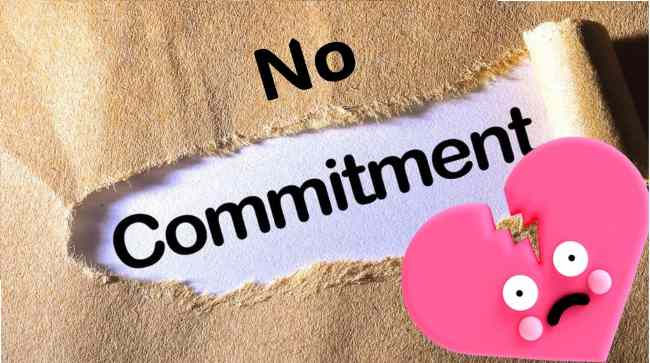Relationship Conflict: My Partner Avoids to Commit?
- Jun 5, 2025
- 4 min read
Updated: Nov 30, 2025
Unpacking Hidden Fears Behind Avoiding Relationship Commitment

The butterflies have settled, shared memories are piling up, and you feel a deepening bond. You're ready for the next step – perhaps moving in together, an engagement, or simply a clearer definition of your future. But your partner? They remain elusive, sidestepping conversations about commitment, or offering vague promises that never materialize. The "Why won't my partner commit?" question can feel like a relentless echo in your mind, causing frustration, confusion, and often, deep hurt.
It’s tempting to blame it on a lack of love, or worse, to self-doubt your own worth. However, the reluctance to commit often has far less to do with a lack of feeling for you, and everything to do with deeply embedded, often unconscious, fears within the committing partner.
As Carl Jung noted, "One does not become enlightened by imagining figures of light, but by making the darkness conscious." Unpacking these hidden fears is precisely that – bringing the darkness of unconscious anxieties into the light.
The Invisible Chains: What Lies Beneath the Avoidance?
Beneath the surface of a commitment-phobic individual often lie a complex web of anxieties. These aren't always logical or easily articulated, making them all the more potent:
Fear of Engulfment/Loss of Self: For some, commitment feels like a prison, threatening their autonomy and individuality. They worry about losing their freedom, their hobbies, their friends, or even their sense of identity within a partnership. This can stem from past experiences where boundaries were violated, or from an upbringing that emphasized fierce independence.
Fear of Making the "Wrong" Choice (The Paradox of Choice): In an age of infinite possibilities, the idea of choosing one person "forever" can be paralyzing. What if there's someone better? What if they're missing out on a different life path? This isn't necessarily about desiring other people, but about the profound, irreversible nature they perceive commitment to hold.
Fear of Responsibility: Commitment brings with it shared responsibilities – financial, emotional, and practical. For those who feel overwhelmed by pressure or who've been burdened by responsibility in the past, this can feel like an unbearable weight.
Past Trauma and Attachment Wounds: Individuals with an avoidant attachment style, often developed in childhood due to inconsistent or unresponsive caregiving, learn to self-soothe and rely solely on themselves. Intimacy and closeness, which commitment necessitates, can trigger deep-seated fears of vulnerability, rejection, or abandonment.
They push away to protect themselves from potential hurt. As John Bowlby, the pioneer of attachment theory, observed, "The propensity to make strong emotional bonds to particular individuals is a basic component of human nature." When these bonds are threatened or mismanaged in early life, the capacity for secure attachment in adulthood can be severely impacted.
Perfectionism and Idealization: Some hold an impossibly high ideal of what a "perfect" partner or relationship should be. No real relationship can ever live up to this fantasy, leading them to constantly find flaws and hesitate to commit to anything less than their idealized vision.

The Hidden Payoff: What Does Avoiding Relationship Commitment Provide?
While painful for the other partner, avoiding commitment often serves a purpose for the person doing the avoiding. It provides a sense of:
Safety: By keeping emotional distance, they feel protected from potential heartbreak or the vulnerability that true intimacy demands.
Control: They maintain control over their life path, their decisions, and their emotional exposure.
Freedom: The illusion of infinite possibilities remains, even if those possibilities are never truly pursued.
Turning the Mirror: Your Own "Hidden Agenda"
While it’s crucial to understand your partner's reluctance, it’s equally important to turn the lens inward. What drives your urgency for commitment?
Is it a genuine desire for partnership and a shared future?
Or is it tied to an unmet need for security, validation, or a fear of being alone?
Are you inadvertently putting pressure on your partner that triggers their avoidance?
Are you perhaps overlooking red flags, hoping commitment will magically solve existing problems?
Understanding your own motivations can illuminate the dynamic you're both caught in. As Sigmund Freud famously stated, "Unexpressed emotions will never die. They are buried alive and will come forth later in uglier ways." This applies not only to your partner's fears but also to your own unspoken needs and anxieties driving the push for commitment.
Navigating the Uncommitted Waters
Addressing commitment issues requires patience, empathy, and honest self-reflection from both sides. It's not about forcing a change, but about understanding the underlying architecture of fear.
Open, non-accusatory communication is key. Share your feelings and needs clearly, but also create a safe space for your partner to express their fears without judgment. If these patterns are deeply ingrained, professional guidance can be invaluable in unraveling past wounds and developing healthier attachment styles.
-----------------------------------------------------------------
Understanding these deeper, often unconscious patterns is the first step towards transforming your relationship dynamics. If you're ready to explore your own attachment and love styles, or to gain further personalized insights into your relationship's unique challenges, consider taking our free in-depth relationship test, which includes assessments for both attachment and love styles. For those seeking one-to-one guidance, our platform also offers personalized relationship support to help you navigate these complex journeys.




Great advice.